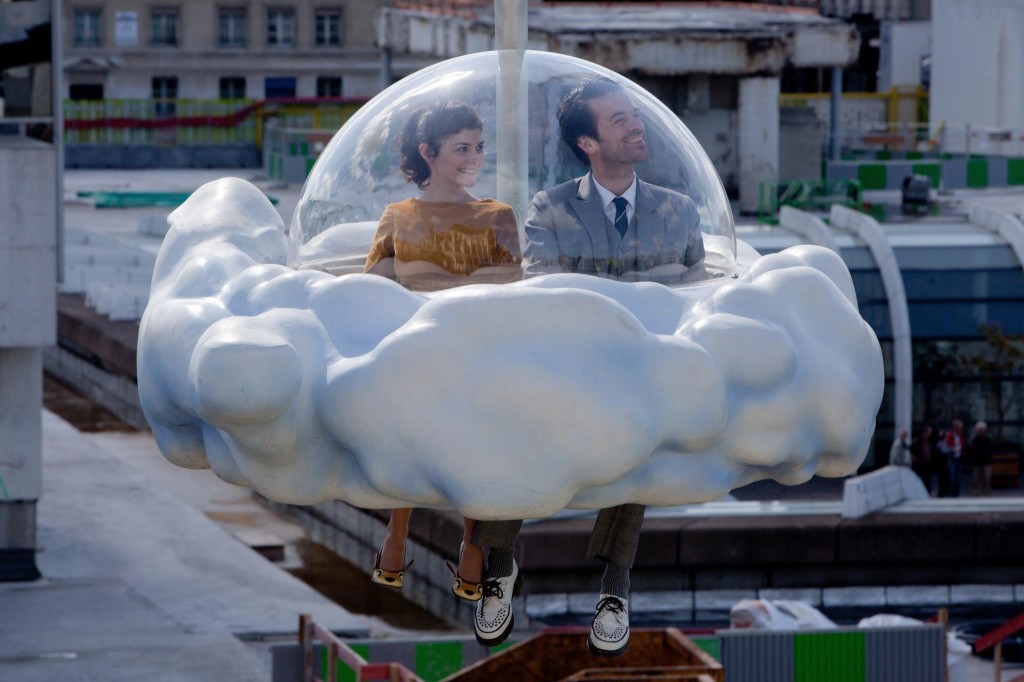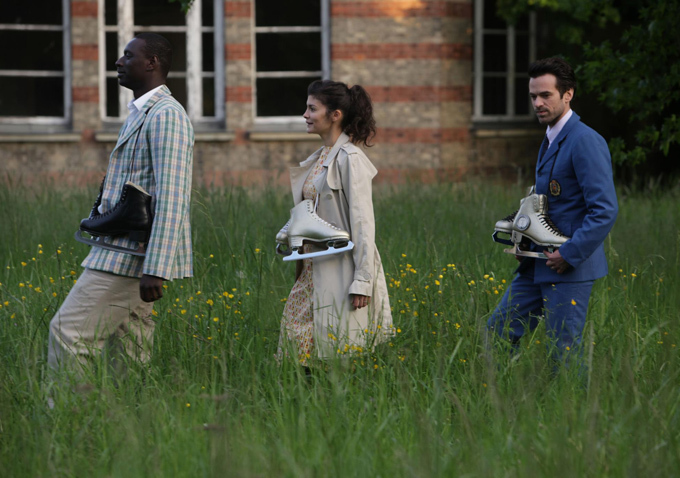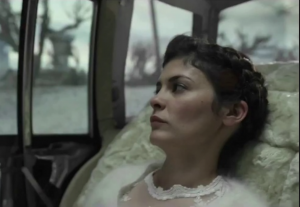 The following review originally appeared in Word and Film.
The following review originally appeared in Word and Film.
Let’s get one thing straight: Michel Gondry directed the best movie of the last decade. Fantastically original and unsentimentally tender-footed, Eternal Sunshine of the Spotless Mind will likely go down in history as one of the greatest romances ever to grace the silver screen. Of course, some of its brilliance can be chalked up to screenwriter Charlie Kaufman. But unlike the Kaufman scripts directed by other filmmakers (including Kaufman himself), Sunshine boasts a heart rather than a navel – and its long-faced, metaphysical interrogation of the plausibility of long-term love is uplifted by a ramshackle, lo-fi sci-fi aesthetic that’s pure Gondry.
But – and we knew there had to be a “but” after a set-up like that, right? – the French director’s work has proven an uneven lot since then. Be Kind Rewind, his 2008 paean to video stores and working-class neighborhoods starring Yasiin “Mos Def” Bey and Jack Black, is a minor delight that’s most noteworthy for its introduction of “Sweding,” a remaking of something with any available materials. And The We and the I, Gondry’s 2011 experimental drama about New York City teenagers that evolved from workshops with real NYC teenagers in an afterschool arts program, makes admirable use of his sympathetic fancies. But 2006’s The Science of Sleep, about a man enthralled by his own unconscious, is about as appealing as listening to someone else describe their dream for two hours, and Gondry’s documentaries The Thorn in the Heart and Is the Man Who Is Tall Happy? suffer from the very navel-gazing that he sidestepped in Sunshine. Block Party, his 2005 doc mixing Dave Chappelle’s comedy with 1990s hip hop interludes, may be pure pleasure but it is also pure Chappelle. The truth is our French friend’s high-octane whimsy is more effective when he’s working from someone else’s material.
So Mood Indigo, Gondry’s latest, seemed a no-brainer. Adapted from Boris Vian’s feverishly creative eponymous 1947 novel, it stars Romain Duris and Audrey Tautou, the reigning king and queen of Pretty French Quirk, as newlyweds who live in a wonderland of their own devise until he is bankrupted by her mortal illness. It’s a perfect match of actors, material, and director – or at least one would think. Alas, the match is too perfect. It’s so much of a piece that the result is whimsy layered upon whimsy upon whimsy. With a little whimsy thrown in for good measure. Vian’s bio reads like a real-life version of Gondry’s characters, or, for that matter, one of his own: a novelist, poet, jazz trumpeter, singer, critic, engineer, critic, and inventor, he died of cardiac arrest at age thirty-nine while watching a Hollywood adaptation of his novel entitled (wait for it) I Spit on Your Graves. Forget about Death by Chocolate. This is, at the risk of sounding terribly flippant, Death by Whimsy. Which, equally flippantly, could also be the name of this film.
Don’t get me wrong. The first bit of Mood Indigo delivers the sort of shaken-up snow globe that is Gondry’s forte. As Colin, a Parisian man of means, Duris sweeps us off our feet with his twinkling eyes and twinkle toes. (He is a former dancer, after all.) He lives in a lavish rooftop apartment surrounded by his cook and lawyer Nicholas (Omar Sy), his pianococktail invention (it translates any piece of music into an alcohol concoction), his gaggle of neo-philosophers, and his swoony collection of jazz records. He meets Chloe (Tautou), “a girl like a Duke Ellington tune,” and their courtship is the stuff of snow globe jazz records (if such stuff exists outside of Gondry and Vian’s imagination): ice rink outings, dances that defy the laws of physics, a ride in a cloud-shaped aircraft. Even their wedding ceremony boasts a wacky pastiche of visual effects, including a split screen with sunshine on one side and a storm on the other. It’s all helped along by the fact that Tautou’s bright, brown-eyed beauty mirrors Duris’s own.
At first we surrender to the manic stream of flourishes: shoes that walk away by themselves, a pet mouse who lives in a tiny replica of Colin’s house, limbs that elongate like gummy worms, crockery with a mind of its own. But it’s a handsome, homemade sea of surrealism that, alas, all too quickly devolves from dazzling to dizzying to just plain nauseating. And not even the characters of Indigo are immune to these side effects of hyper-absurdism: On their honeymoon, a lily spore takes root in Chloe’s lung and a doctor (played with deadpan glee by Gondry) prescribes prohibitively expensive bouquets of flowers as her only possible cure. Colin’s wealth subsequently dwindles, and their Technicolor dream house slides into a nightmare of cobwebs, oil slicks, and dust.
 The problem here is the same problem with Vian’s cult novel: There’s no dramatic thrust. These surfaces, however splendid, are just surfaces, and we fuse no emotional connection to the characters or story, not even as an allegory. The result is we respond to their burst bubble not as a tragedy but as a bummer – much as a child would abandon a broken toy to which he’s formed no attachment. Gondry might’ve seemed the perfect candidate to tackle Vian’s seemingly unfilmable novel – and, indeed, this movie is markedly faithful to its source material – but in fact he was the worst. The last thing a Don Quixote needs is another Don Quixote. Quick, somebody: Ground this Gondry, stat!
The problem here is the same problem with Vian’s cult novel: There’s no dramatic thrust. These surfaces, however splendid, are just surfaces, and we fuse no emotional connection to the characters or story, not even as an allegory. The result is we respond to their burst bubble not as a tragedy but as a bummer – much as a child would abandon a broken toy to which he’s formed no attachment. Gondry might’ve seemed the perfect candidate to tackle Vian’s seemingly unfilmable novel – and, indeed, this movie is markedly faithful to its source material – but in fact he was the worst. The last thing a Don Quixote needs is another Don Quixote. Quick, somebody: Ground this Gondry, stat!
